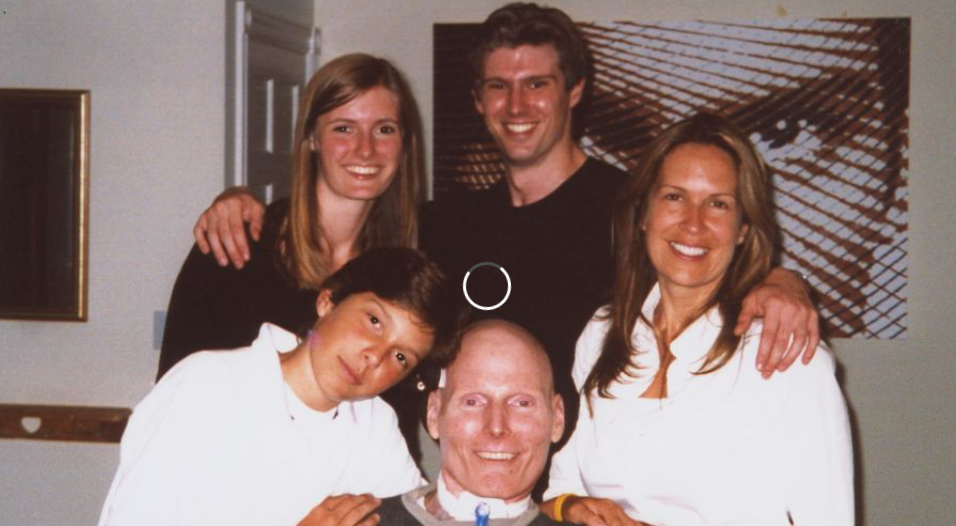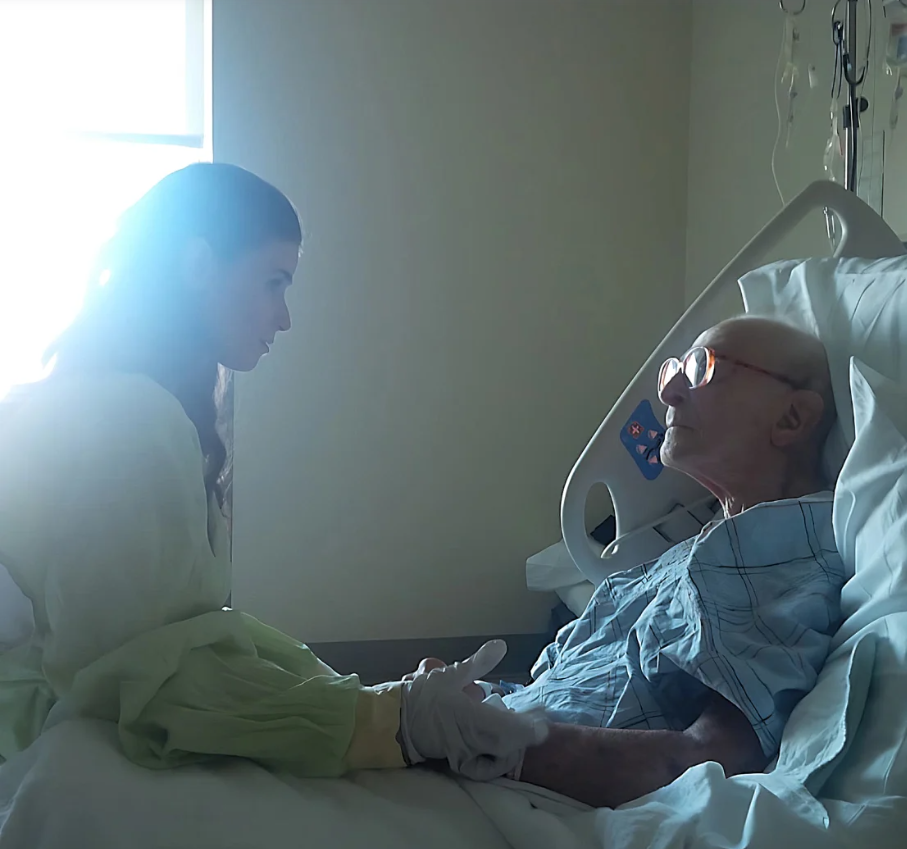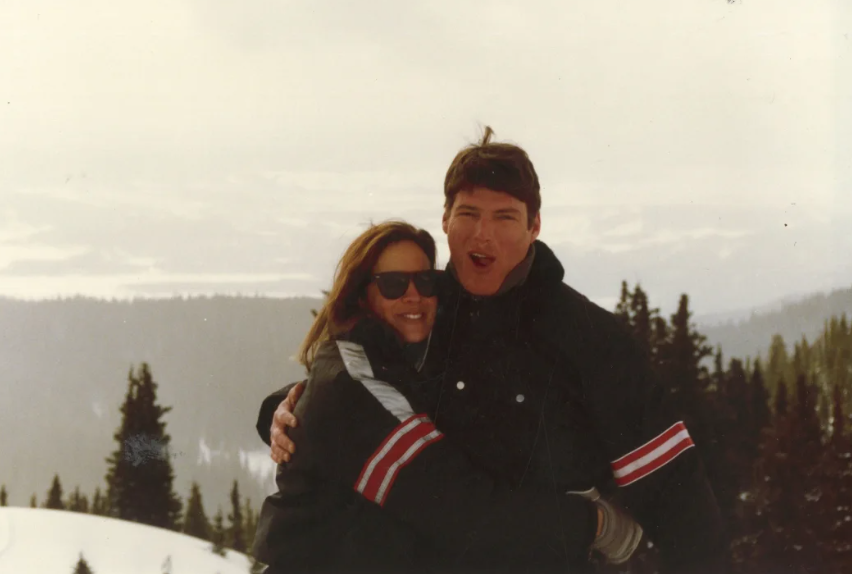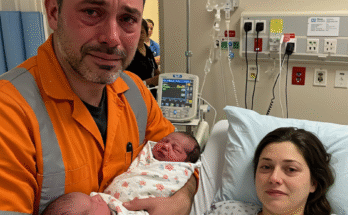Dana Reeve was more than just a devoted wife; she was a caregiver, an advocate, and a woman who bore an immense emotional burden long before she lost her husband, Christopher Reeve. As highlighted in the new documentary Super/Man: The Christopher Reeve Story, Dana’s journey as a caregiver reveals a lesser-discussed type of grief—the grief of losing someone piece by piece while they are still alive.
In her personal diary, Dana put into words what many caregivers struggle to express, a sentiment her son, Will Reeve, reads aloud in the documentary. “I’ve been studying the difference between solitude and loneliness, telling the story of my life to the clean white towels taken warm from the dryer and held to my chest. A sad substitute for a body pulled in close,” she wrote. Her words echo the deep loneliness and loss she felt, even as she continued to love and care for Christopher.
When Christopher Reeve suffered a near-fatal horseback riding accident in 1995 that left him paralyzed from the neck down, Dana Reeve lost the man she once knew. Though he remained mentally sharp and emotionally present, their relationship changed forever. The physical intimacy they once shared, the spontaneous adventures, and the simple joys of everyday life were gone. In her diary, Dana poignantly reflected, “The whole man took his last walk away from me five years ago today, leaving only mind, soul, heart and heartache behind.”
This type of grief, the mourning of someone who is still alive, is something many caregivers experience but rarely voice. It is a pain that coexists with love, a sorrow that does not negate devotion but makes it even more profound.

The Unspoken Grief of Caregivers
Most people associate grief with death, but for caregivers, grief begins long before a loved one passes away. It is the grief of watching someone transform before their eyes, of knowing that life will never return to the way it once was.
Dana’s experience was not unique. Many caregivers feel the weight of loss even as they dedicate themselves to providing care. They grieve the fading of shared dreams, the inability to engage in once-loved activities, and the shift in dynamics from partner to patient. Yet, caregivers often hesitate to voice these feelings, fearing it may seem disloyal or ungrateful.
Allison J. Applebaum, a professor of geriatrics and palliative medicine at the Icahn School of Medicine at Mount Sinai, explains the two types of grief caregivers typically experience:
- Anticipatory grief – The sadness and anxiety about an inevitable loss, preparing for a future without their loved one.
- Present-oriented illness-related grief – Mourning the loss of the person as they once were, even while they are still physically present.
For Dana, the latter was a constant companion. She had not lost Christopher in the final sense, but she had lost the life they once shared.
Finding Meaning Amid the Pain
Acknowledging grief is essential for caregivers, not just to cope but also to find meaning in their journey. Applebaum believes that suppressing grief can prevent caregivers from fully engaging with the beauty that still exists in the care experience. “Grief is a portal to meaning and growth, allowing you to connect to the things that are still there,” she says.
Dana embodied this balance. Even as she grieved, she remained steadfast in her love and commitment. She became an advocate for spinal cord injury research, supporting her husband’s mission through the Christopher & Dana Reeve Foundation. She found strength in their shared purpose, transforming pain into action.
But finding purpose does not mean ignoring grief. Dana, like many caregivers, carried an emotional burden that required space and expression. She allowed herself moments of solitude, where she could process the losses that had already occurred while still embracing the love that remained.

Grief in Everyday Moments
Grief for caregivers does not come all at once. Instead, it unfolds in quiet, unexpected moments.
Courtney Martin, a caregiver for her father who has dementia, describes experiencing “micro-griefs of the little deaths along the way.” These are the small but painful reminders of change—the moment when a loved one forgets a cherished memory, when they no longer enjoy an activity they once loved, when a ritual that once bonded them is no longer possible.
For Dana, grief appeared in moments like folding laundry, longing for the touch of a husband who could no longer hold her. For others, it might come while setting an extra place at the dinner table out of habit, only to remember it is no longer needed.
Caregivers often push their grief aside, prioritizing the needs of their loved ones. But suppressing these emotions can be harmful. As Martin explains, finding time to grieve—even in small ways—is essential. “I cry in my car, on hikes, and I’ve gotten into listening to music really loud, which is more a way to express anger and sadness,” she says.
The Importance of Community
One of the most isolating aspects of caregiver grief is the feeling that no one else understands. However, talking about these emotions can be incredibly healing.
Aaron Barnhart, who cares for his wife with Lewy body dementia, found relief when he started openly identifying as a caregiver. “A big turning point for me came when I was willing to tell other people that I casually knew that I was a caregiver,” he shares. Naming the role allowed him to accept his reality and talk about his grief in a way that felt more natural.
For caregivers, finding a supportive community—whether through friends, family, or professional networks—can make all the difference. It allows them to process their losses, share their struggles, and ultimately, find strength in their experiences.
Dana Reeve’s Last Goodbye
Two years after Christopher Reeve’s passing, Dana faced another battle—this time, her own. Diagnosed with lung cancer despite never having smoked, she remained characteristically resilient, assuring the world she was determined to fight.
Yet, the grief she had carried for years had taken its toll. Her body may have succumbed to illness, but her spirit remained unbroken. Even in her final days, she continued advocating for caregivers, ensuring that their struggles were acknowledged and their voices heard.
Dana Reeve’s story is one of love, loss, and unwavering dedication. She grieved long before she said her final goodbye, yet she never let that grief overshadow her love. Instead, she carried both—side by side—until the very end.



